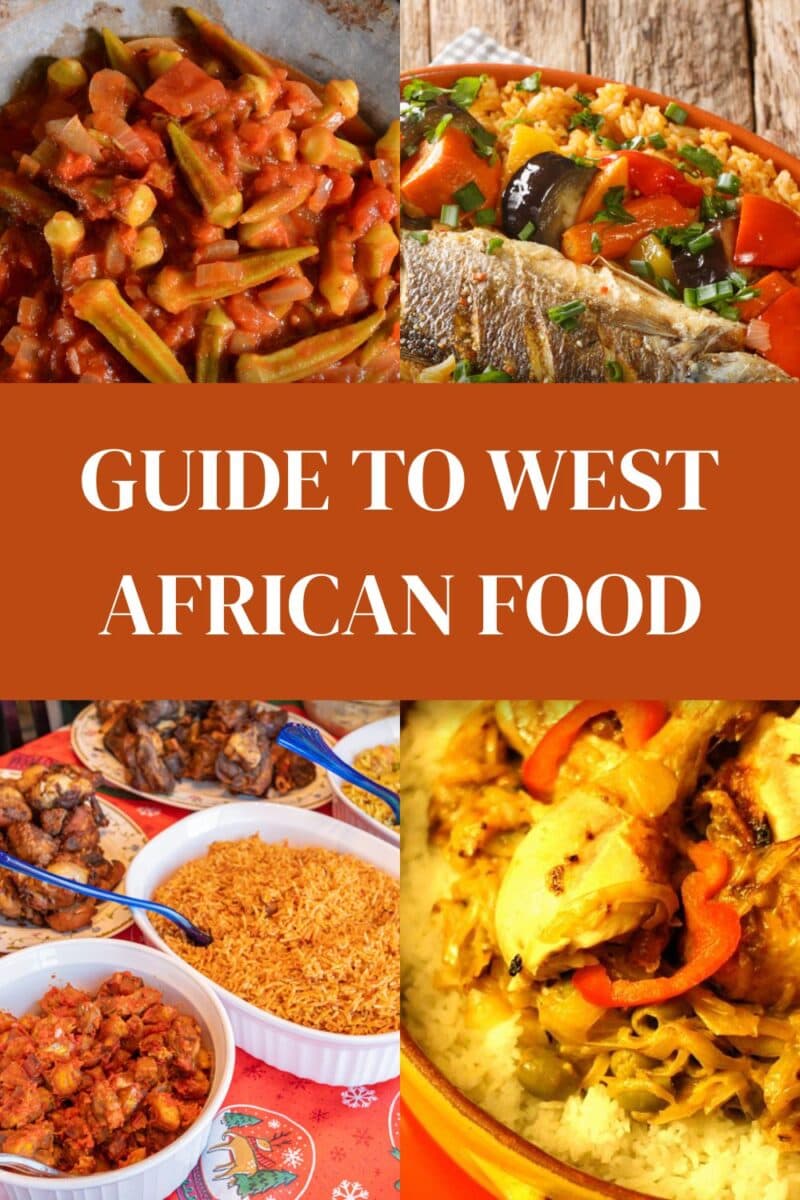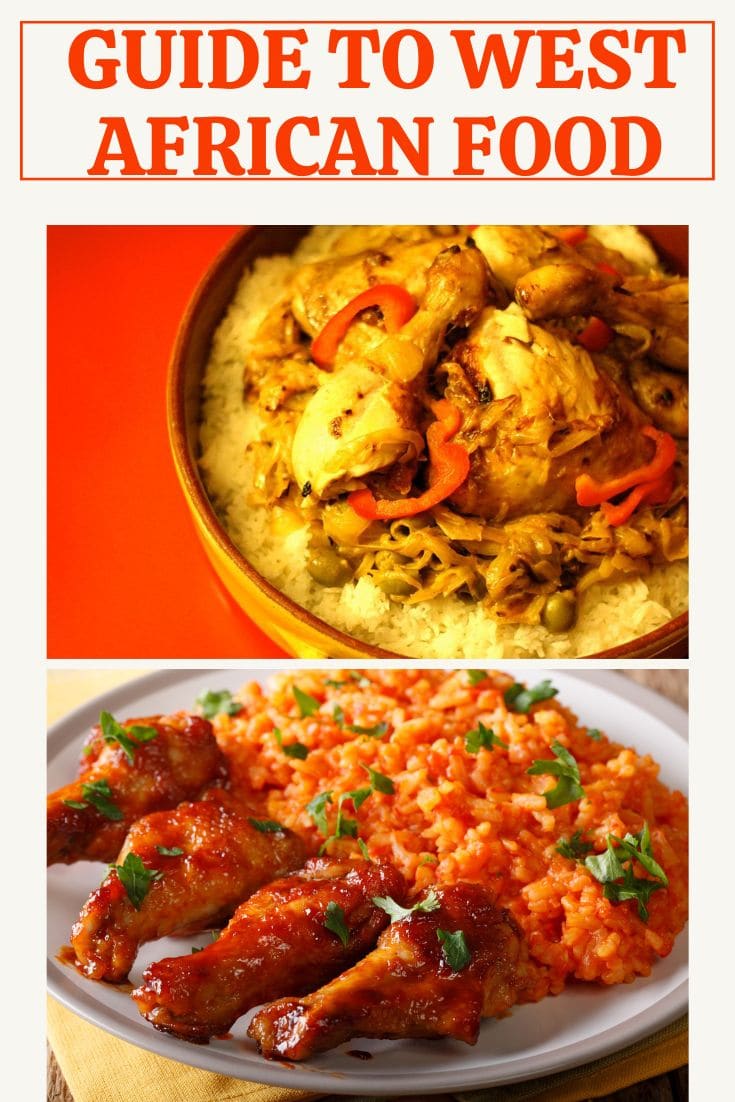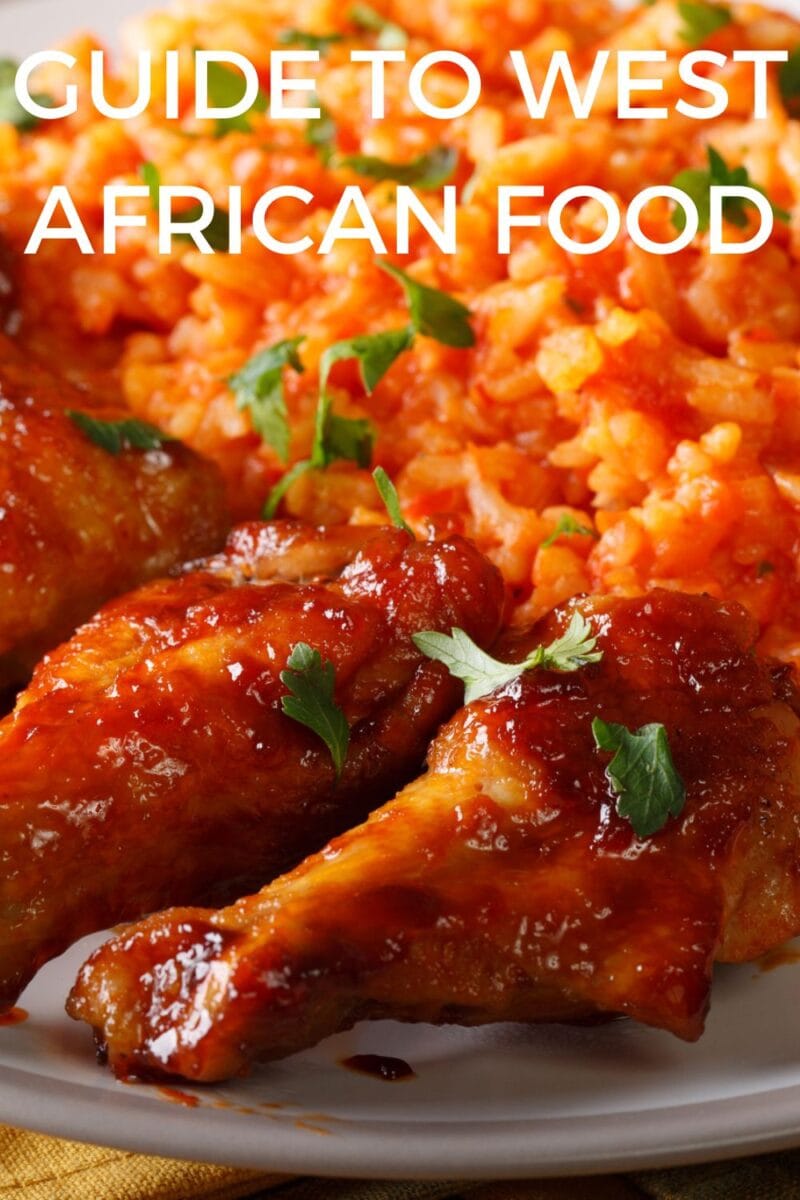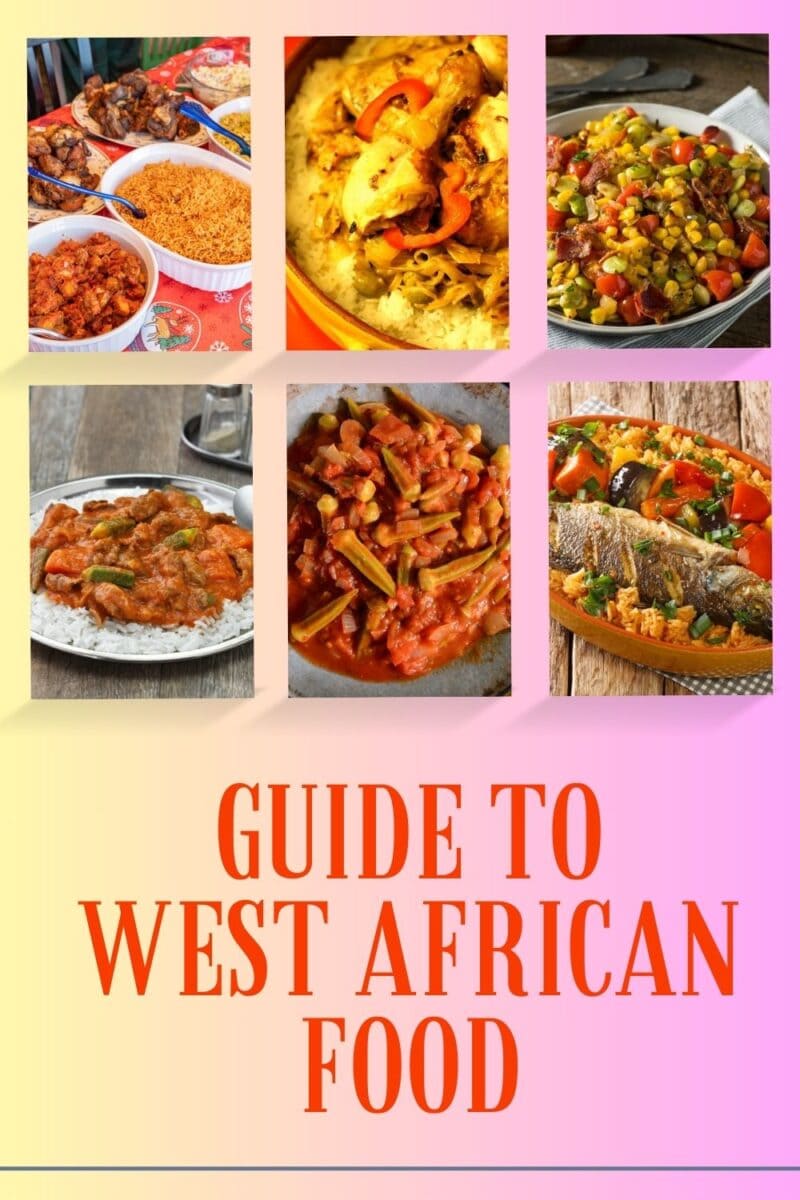11 West African Dishes you need to try
Traditional West African food is a distinctive, cuisine that varies from region to region but has a common thread in the types of ingredients used. Over the centuries, the food of West Africa has been deeply influenced by colonizing nations but you can still find traditional flavours and a renewal of interest in these traditional foods. Eating products grown and produced locally and reinventing traditional cooking is at the heart of the surge of interest in African foods.
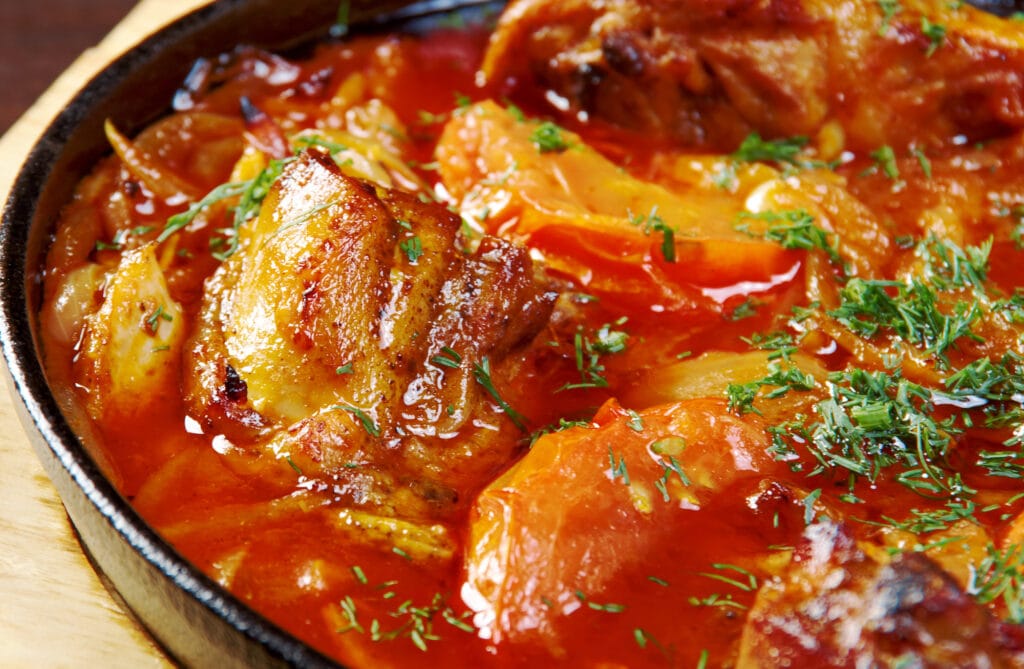
- 11 West African Dishes you need to try
- Questions about West African Foods
- 1. What is West African cuisine known for?
- 2. What are some popular West African dishes to try?
- 3. Which countries in West Africa are known for their cuisine?
- 4. What ingredients are commonly used in West African cooking?
- 5. How is West African food usually served?
- 6. What makes West African cuisine a popular choice?
How many countries are in West Africa?
West Africa is made up of 16 nations: Benin, Burkina Faso, Cameroon, Cabo Verde, Chad, Côte d’Ivoire, Equatorial Guinea, Gambia, Ghana, Guinea, Guinea-Bissau, Liberia, Mali, Mauritania, Niger, Nigeria, Senegal, Sierra Leone, and Togo. Geographically speaking West Africa also includes Mali, Mauritania and Niger.
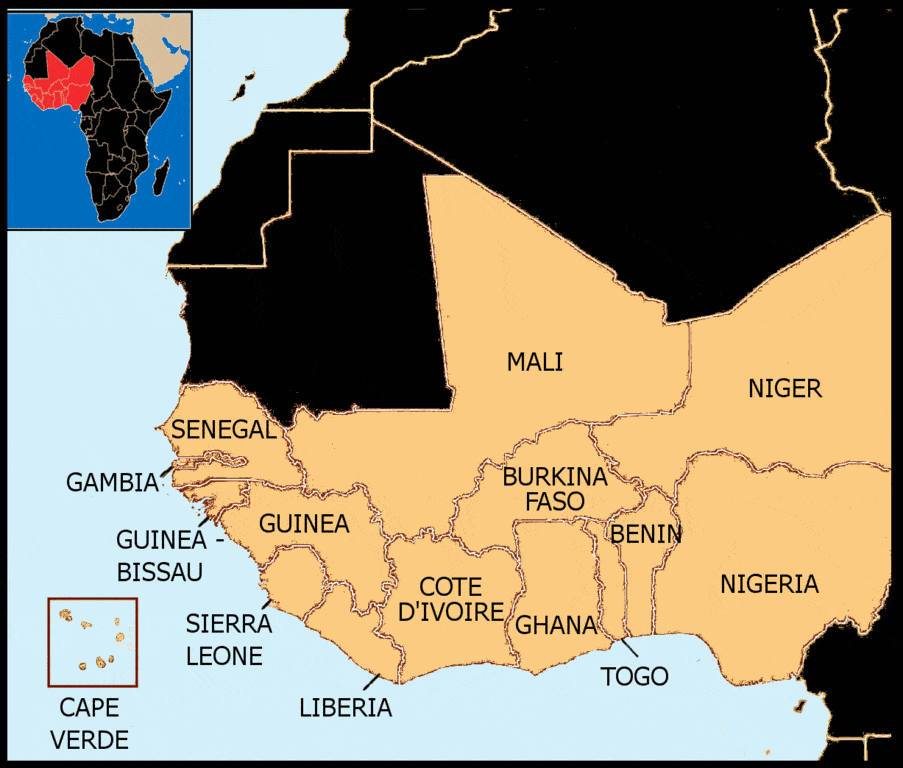
While the region’s flavours have been influenced by colonizing nations it had the ‘least’ amount of contact with European and Arabic communities. The main ingredients adopted by West Africans are cassava, peanuts and chillies, which arrived with the slave trade in the 16th century. You can still find distinctive, traditional West African cuisine. Prior to this, the people were trading with the Arabic communities of the North for spices.
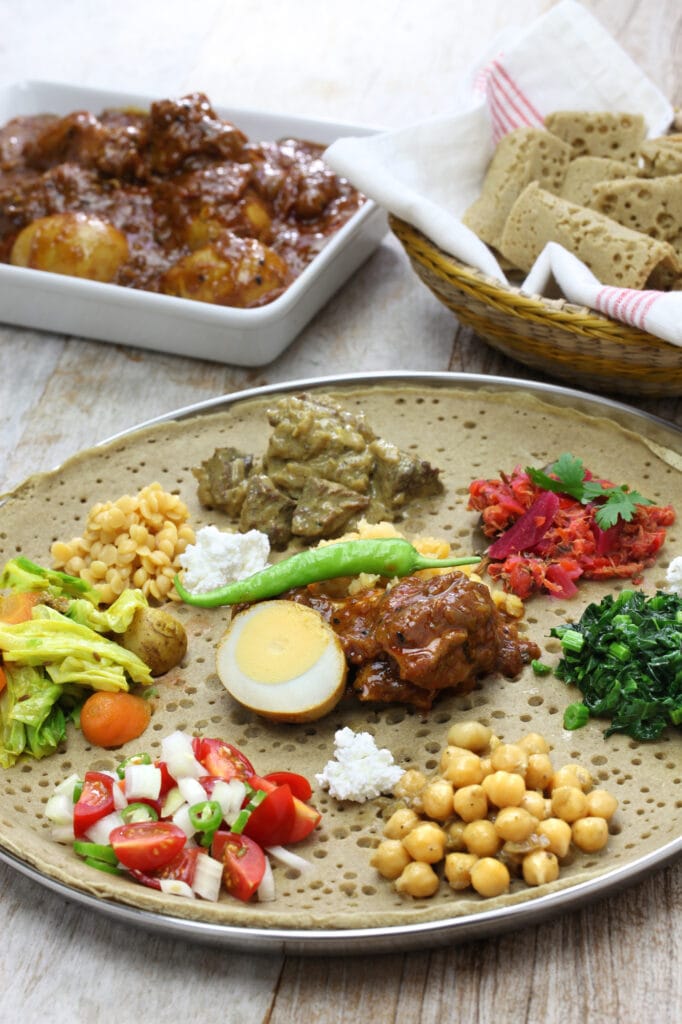
West African Food Ingredients
Peas, Beans and Cassava
Plentiful and easy to grow these basic starches or carbohydrates are the backbone of West African foods. Other favourites include yams, sweet potatoes, corn, rice, millet and the best of all cassava. Cassava is milled into flour, which is then used to make dough called Fufú.
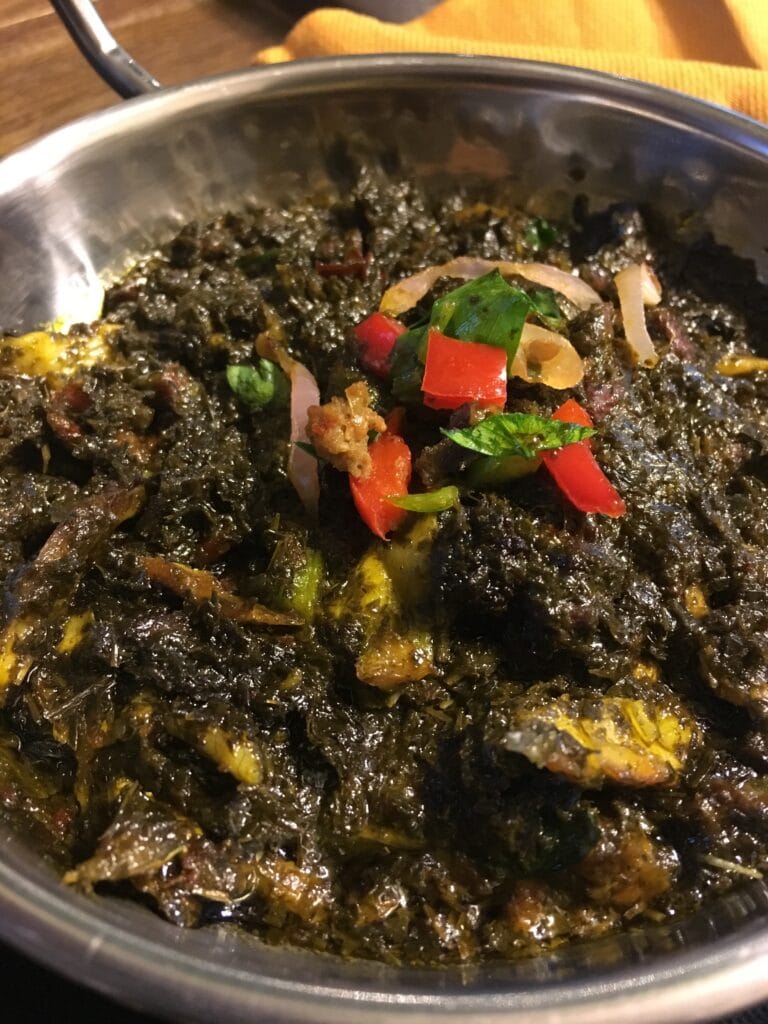
Fufú is a slightly sour and starchy dough that is broken into small chunks and used to create a spoon to scoop up stews and soups. Fufú would be similar to a dumpling in European cultures.
Fruits
West Africa has a relatively long warm growing season, which produces fruits such as mango, melon, coconuts, citrus fruits, grapes, pineapples and avocado. These fruits are used both fresh and dried for fruit juices and drinks, desserts and often combined with meats and vegetables to sweeten certain dishes. Plantains although similar in appearance to bananas are extremely starchy, they are used more often in place of potatoes.
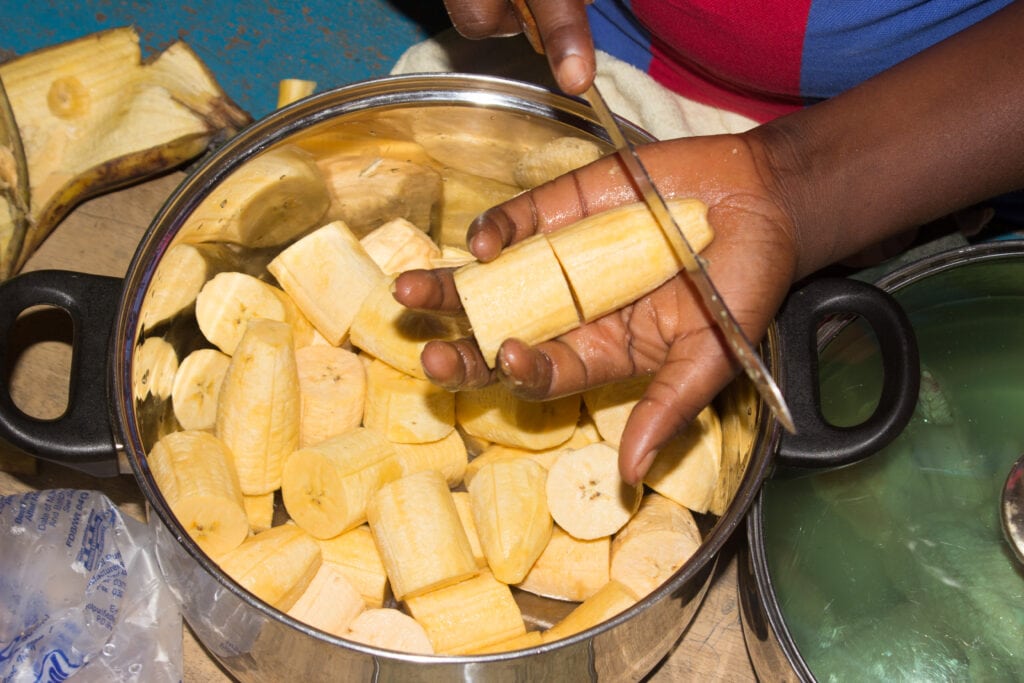
West African vegetables
Many Mediterranean vegetables grow quite happily in the warm sun of West Africa. Sweet Bell peppers, tomatoes, onion, herbs and okra all grow well here. Greens are a great favourite in West African cooking from Swiss chard to mustard and cabbage greens the range of these vegetables is extensive and growing as more African Chefs incorporate these traditional greens into tasty West African dishes.
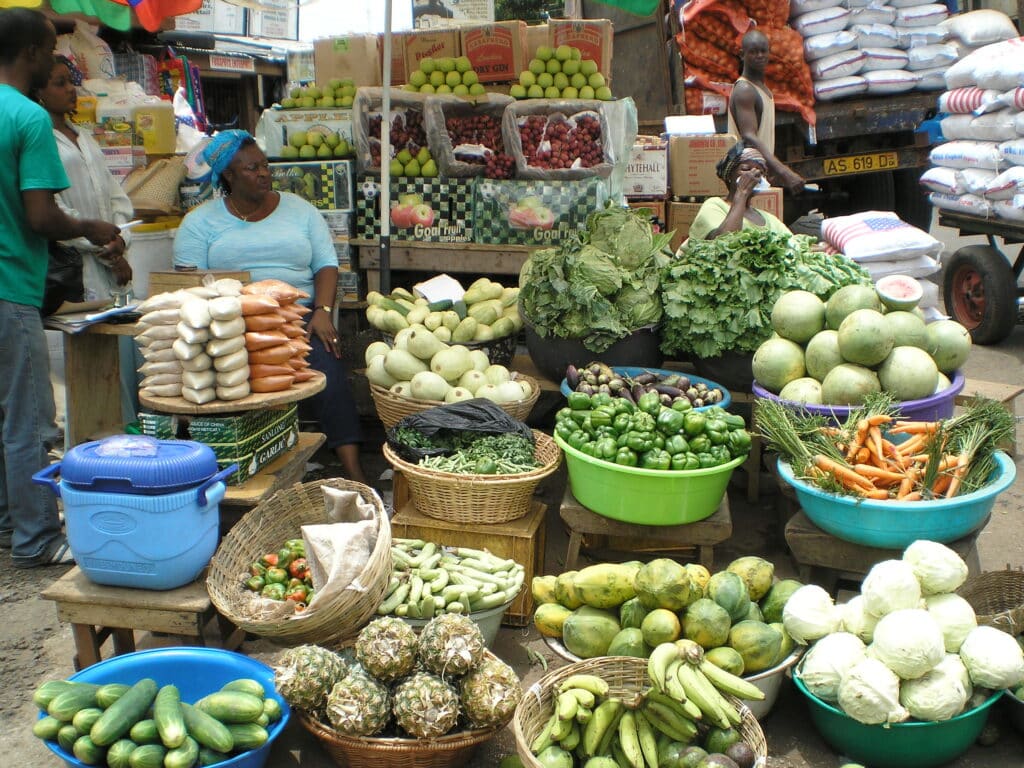
Meat
Cattle is expensive in West Africa so red meat is pretty hard to find, the few cows you do see are dominantly used for milk and are considered a sign of wealth, not food. Chicken, goat and pork are far more popular and used in a variety of long-simmered soups and stews. Fish and seafood are of course popular along the coastlines and there are abundant sources of them. Grilling, frying and steaming are amongst the most popular style of preparations but each area has its favourite seafood dish.
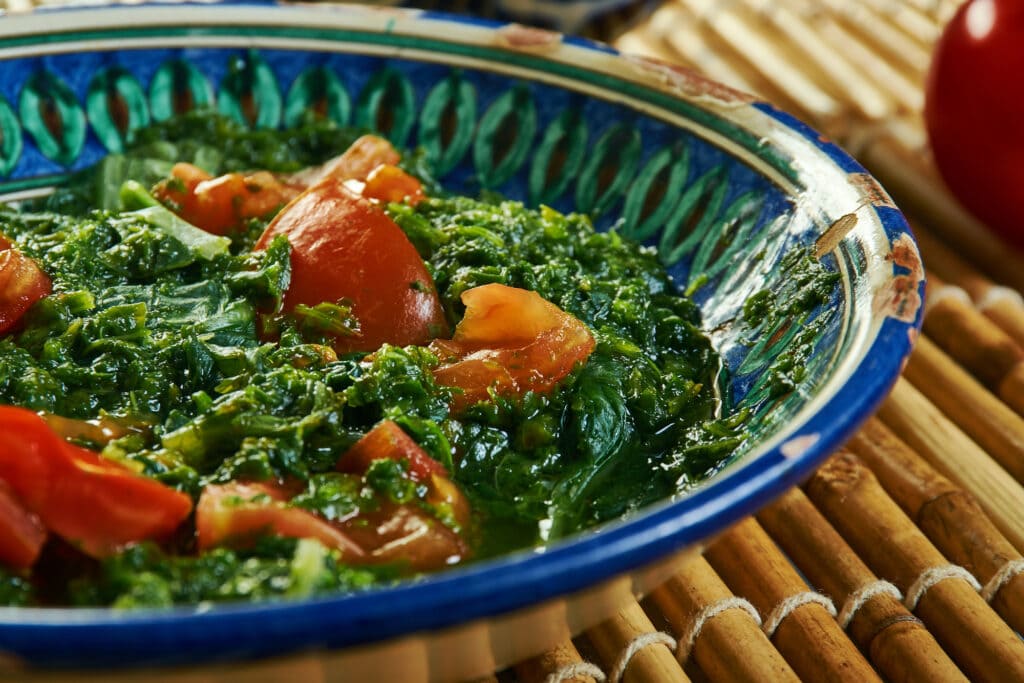
Groundnuts and Oils
Palm Oil and Peanut Oil are the most common fats used in West African cooking. Palm oil is a great favourite as it lends a reddish colour to the foods being prepared and a distinctive flavour. Sometimes known as the ‘Olive Oil’ of Africa Palm Oil has been used in everything from soap to soups. Groundnuts are in the peanut family and are used in many dishes boiled and mashed or used to make sauces and stews. The oil is often extracted and used to fry foods as it can take a higher temperature than Palm Oil.
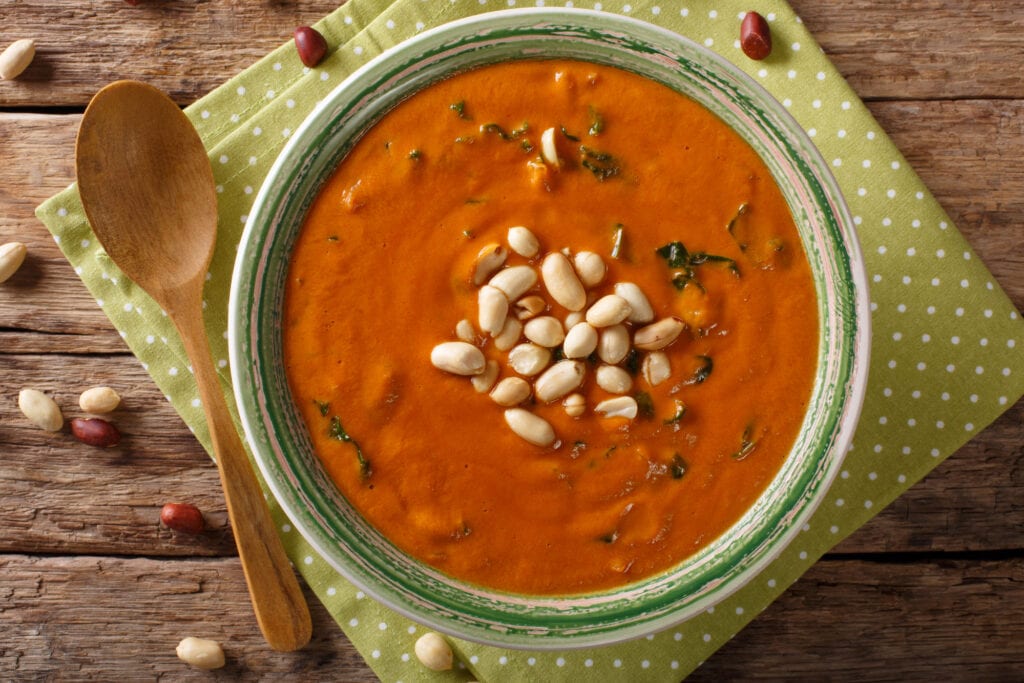
Spices and Chillis
West Africans like spicy food, like most hot countries a spicy stew or soup, will actually cool you down as you sweat and the evaporation of sweat allows you to feel cooler. The spicing levels are quite high and West Africans love to use habanero chilli, Scotch bonnets, thyme, coriander, ginger, cayenne and other hot spices. A favourite African condiment is a spicy pepper sauce which is used both as an ingredient and added to dishes to ‘warm’ them up a little.
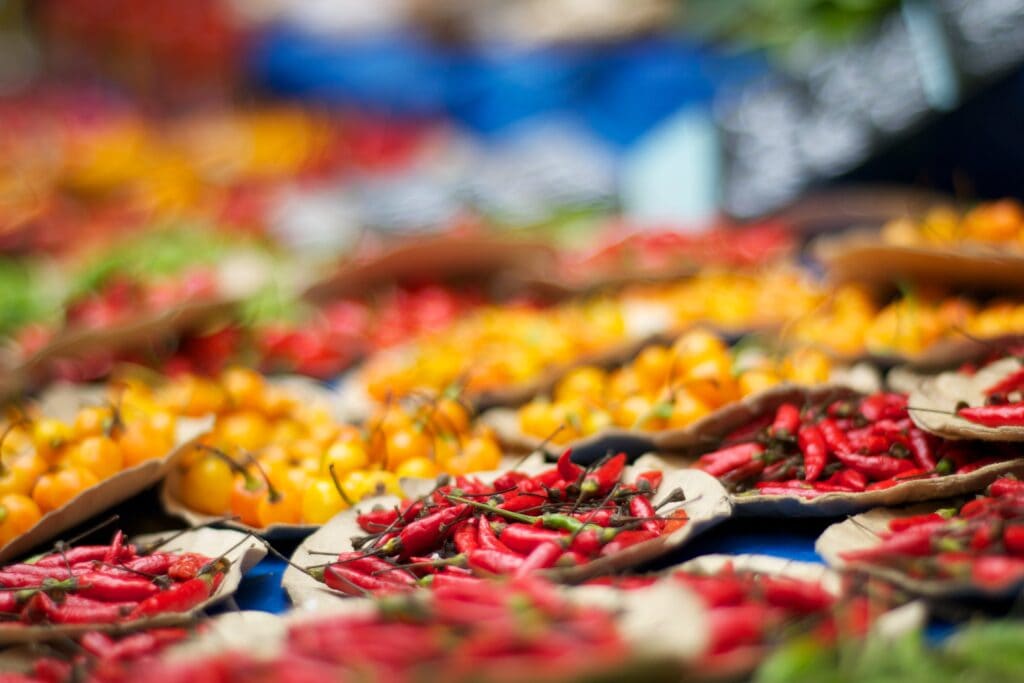
West African drinks
With a great range of fruits and vegetables to choose from African juices are very popular at any time of day. In many areas, the Muslim community is forbidden alcohol and so there is a great variety of juices to choose from. One of the most popular drinks is Hibiscus tea served cold or warm; this is known as karkadeh in Arabic and is served throughout Africa.
A great favourite of West Africans is Ginger Beer a non-alcoholic drink that can be made fermented with yeast or non-fermented. This refreshing drink is not only said to be healthy and healing but it quickly quenches your thirst.
Mint tea is the drink most appreciated in Senegal. Senegal tea-drinking revolves around mint tea especially, similar to other countries in the West Africa region, such as Gambia and Mauritania.
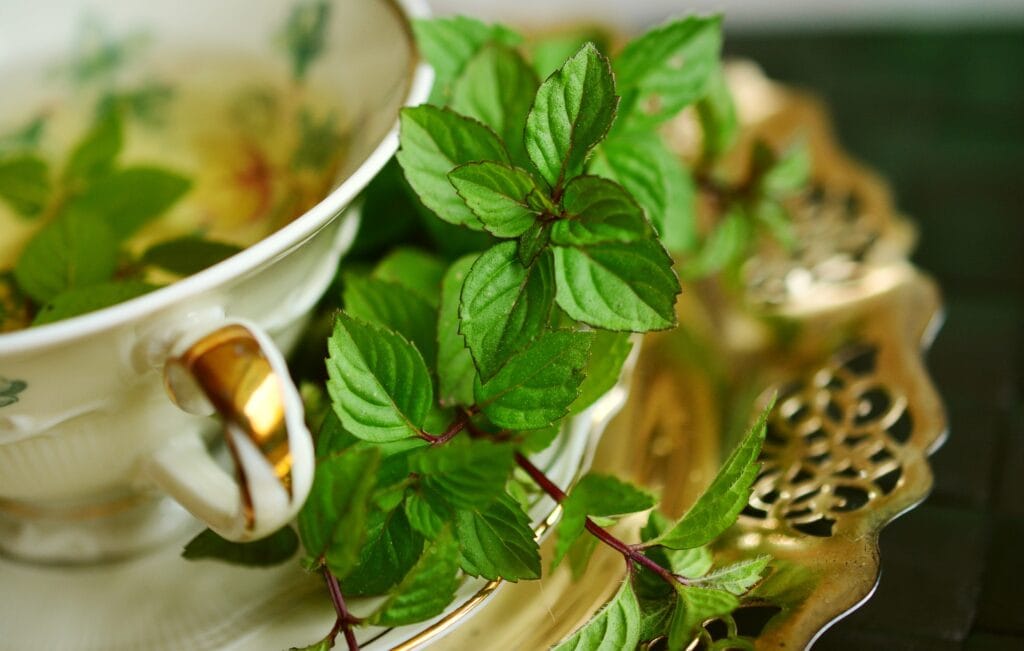
Coffee
With the exception of Ethiopia, Africans drink very little coffee. As a historical cash crop, coffee has been grown for export while many African producers have predominantly tea-drinking cultures. West African coffee-growing countries including Senegal and Cameroon where robusta coffee beans are mostly grown. Nescafe works in West Africa growing coffee beans for their instant coffee, which is the usual coffee, served in West Africa.
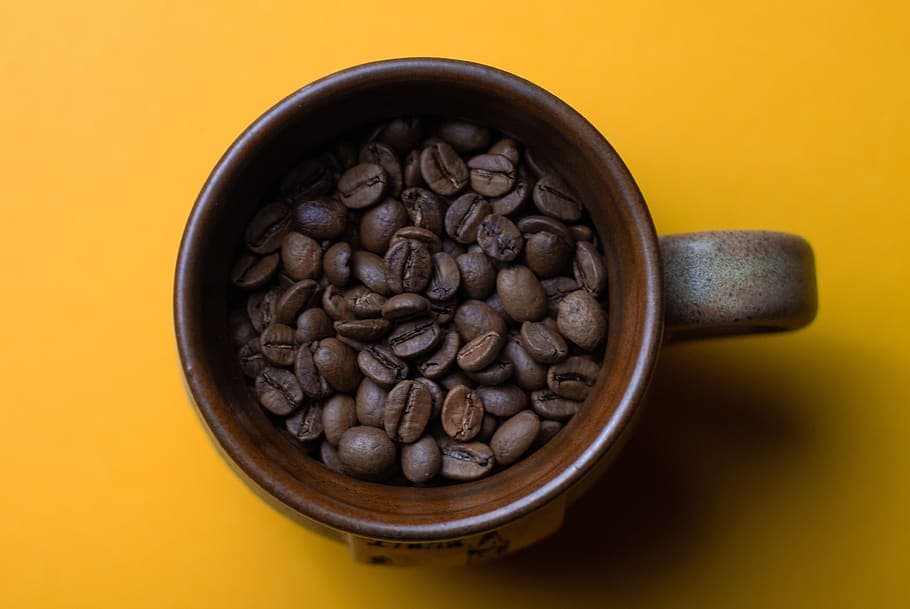
The Senegalese Cafe Touba is part of the 19th century spiritual legacy of Sheikh Ahmadou Bamba. This coffee is made with West African beans and includes cloves and pepper (Uda Djar) it is said to be the perfect fusion of spice and coffee. Traditionally this coffee is served hot and black with sugar but it is also a great summer favourite served over ice.
10 West African Dishes you need to try
Waakye rice and beans
Waakye is a rice and bean dish that is very popular as street food in Ghana. It is usually served for breakfast or lunch with a typical Ghanaian spicy pepper sauce. It can be a meal in itself or it can be eaten with boiled eggs and/or with a stew of fish, chicken, beef, or vegetables.
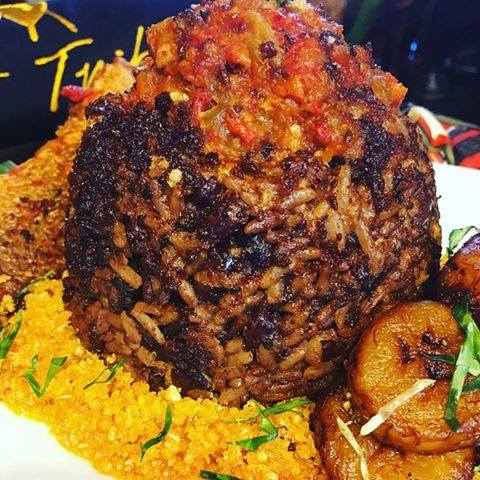
Fufú
Fufú is usually made from cassava, yams, and sometimes combined with cocoyam, plantains, or cornmeal. In Ghana, fufú is mostly made from boiled cassava and unripe plantain beaten together, as well as from cocoyam. Fufú can also be made from semolina, rice, or even instant potato flakes.
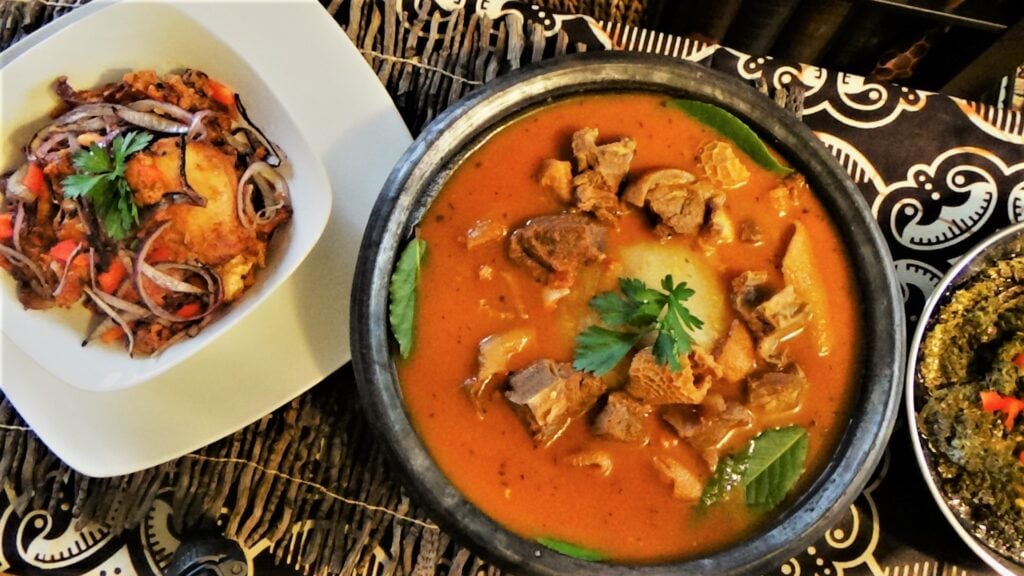
In Western and Central Africa, the more common method is to serve a mound of fufú along with a soup (ọbẹ). After washing hands, the diner pinches off a small ball of fufú and makes an indentation with the thumb. This reservoir is then filled with soup, and the ball is eaten. In Nigeria and Ghana, the ball is often not chewed but swallowed whole – in fact, chewing fufú is considered a faux pas.
Maafe – Groundnut stew
Groundnut stew or Maafe is a dish that is common too much of West Africa, recipes are incredibly varied but the basis of the stew is groundnuts or peanut butter. The recipe usually begins with the trinity of West African cooking (tomatoes, onions and chillies) to which is added mutton, chicken or beef. In the coastal regions of Senegal, Maafe is made with fish. Traditionally the stew is served with sides that include fufú, white rice, couscous or sweet potatoes.
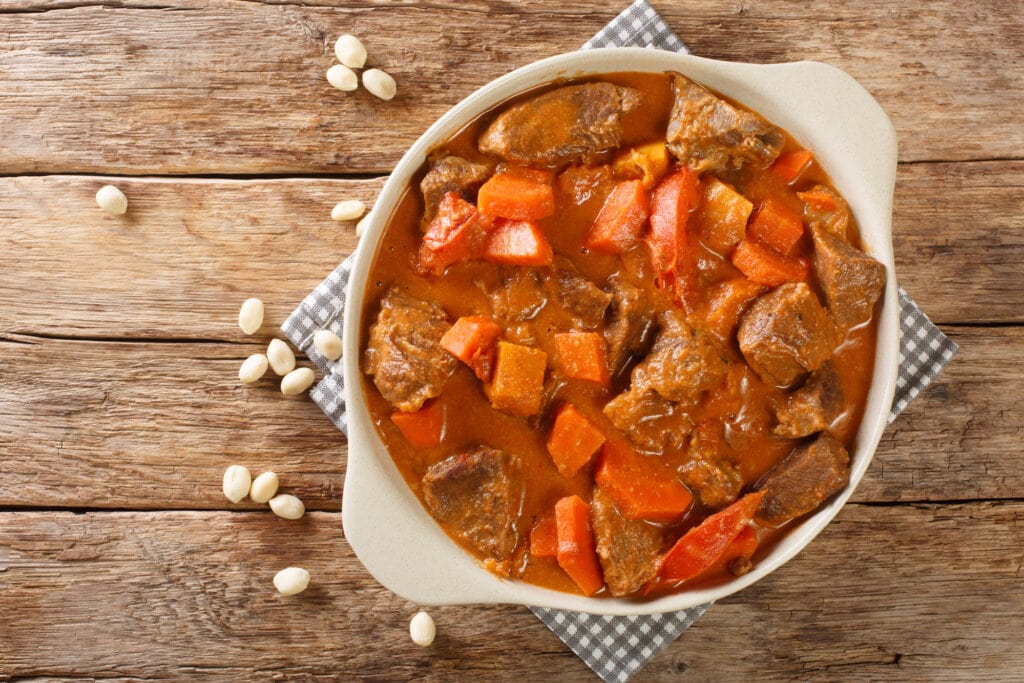
Maafe can also include meat like chicken, lamb, or beef. It is typically served with rice or couscous.
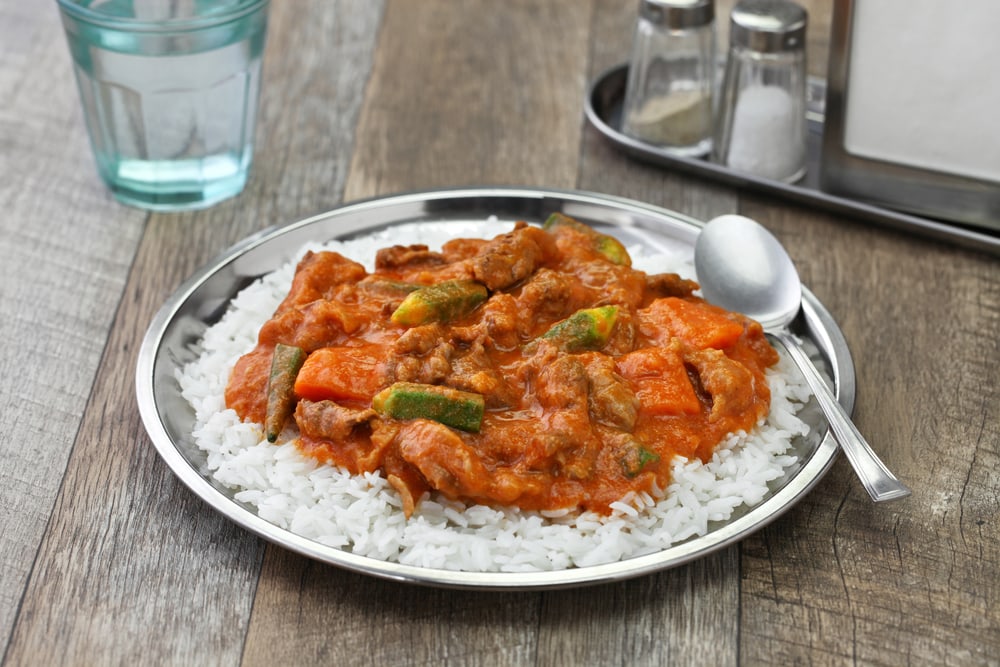
Jollof rice
Jollof rice could be considered the national dish of West Africa. Its origin lies in Senegal but is has spread across the entire area with both Nigeria and Ghana considering it their dish as the name is derived from Wolof which is an ethnic group from these areas. The most common basic ingredients are rice, tomatoes and tomato paste, onion, salt, and red pepper. Beyond that, nearly any kind of meat, vegetable, or spice can be added. Jollof Rice is considered one of the top Nigerian food dishes and it can be found worldwide.
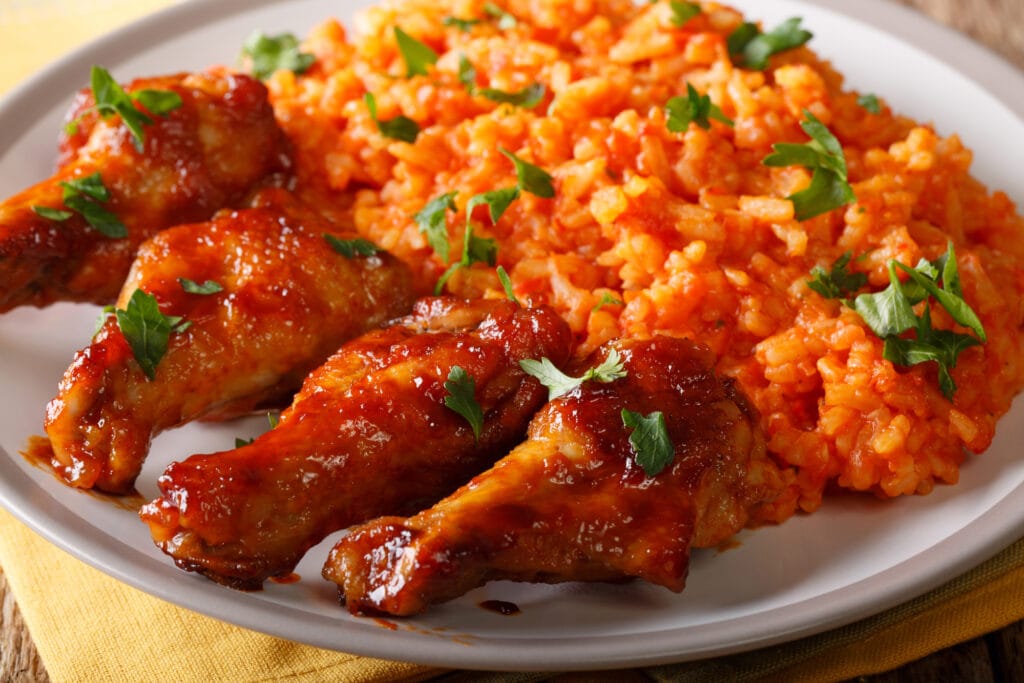
Egusi soup
Egusi soup is a very popular West African dishmade with ground Egusi melon seeds, which is a type of squash or melon. The seeds are shelled, pounded, and then used to thicken the soup. The soup itself is rich with vegetables including tomato, okra, bitter leaf, onions, chilli peppers and other greens. Sometimes the soup is made with seafood, beef, pork or chicken and goat is also a big favourite.
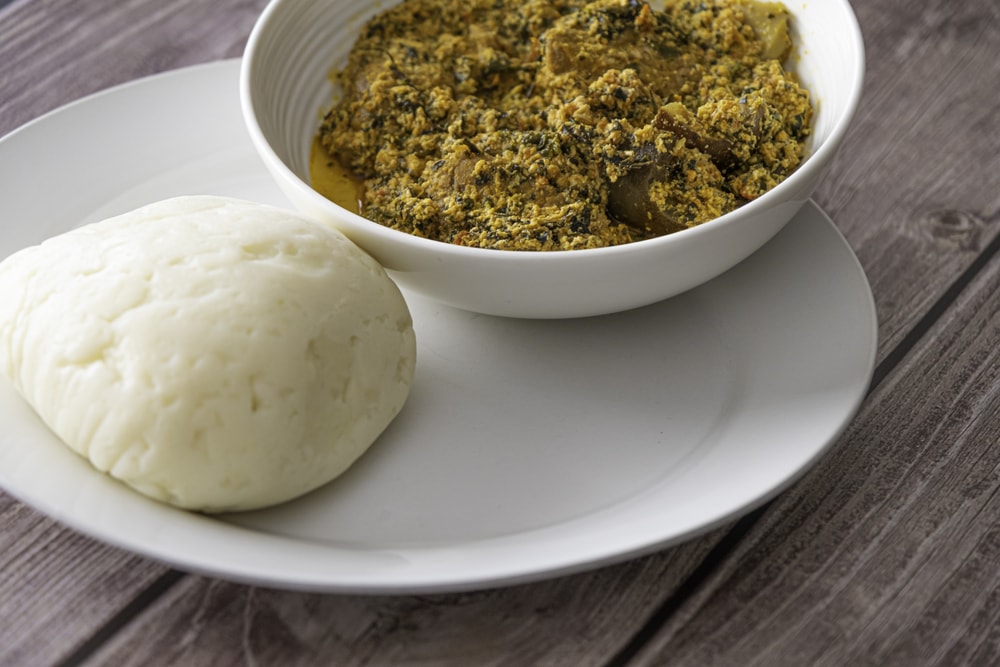
Moi Moi
Moi moi is a traditional Nigerian dish made from ground beans, typically black-eyed peas, along with ingredients like onions, peppers, and spices. The mixture is blended into a smooth paste, then steamed until firm. It is often served as a side dish or snack and is popular in Nigeria and other West African countries.
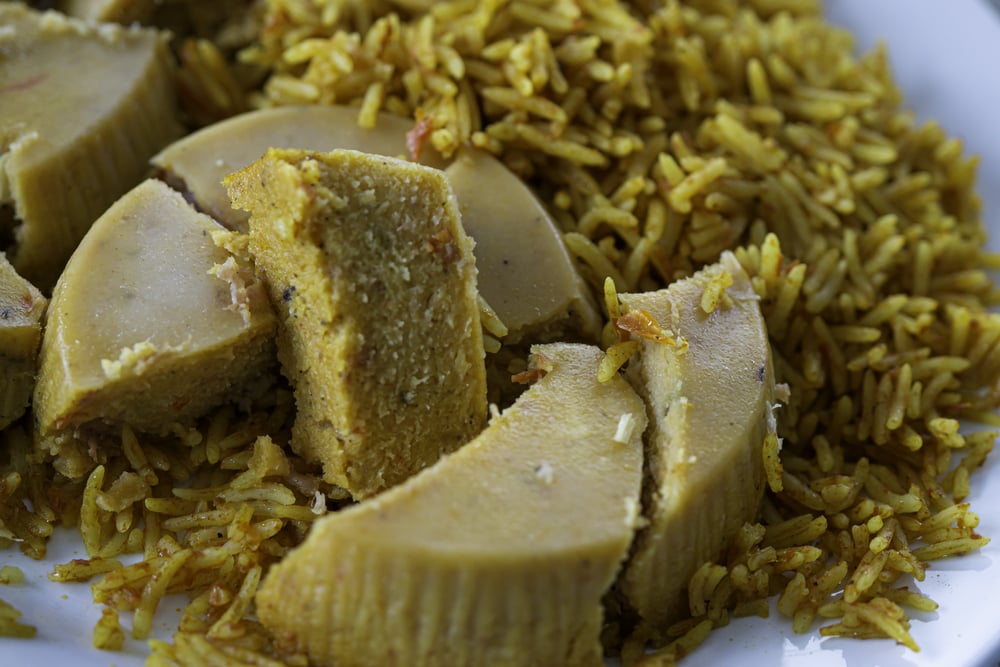
African Okra Stew
West African Okra Stew, also known as “okra soup” or “okra sauce” depending on the region, is a flavorful and hearty dish commonly found in countries like Nigeria, Ghana, and Cameroon. It’s a staple in West African cuisine and is enjoyed across various communities with slight regional variations in ingredients and preparation methods.
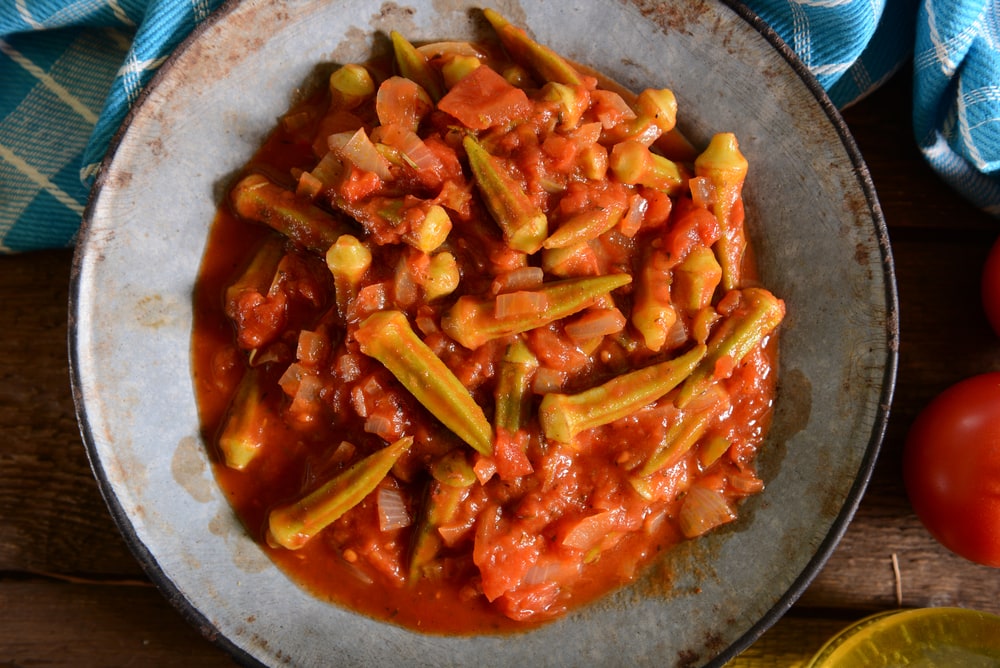
Suya
Suya is a spicy kebab (skewered meat) that is very popular in West Africa. The Hausa people of northern Nigeria, Cameroon, Niger, Ghana and some parts of the Sudan (where it is called agashe), traditionally prepare it. Suya is generally made with skewered beef, mutton, or chicken. The thinly sliced meat is marinated in various spices and barbecued. Suya is served with further helpings of dried pepper mixed with spices and sliced onions.
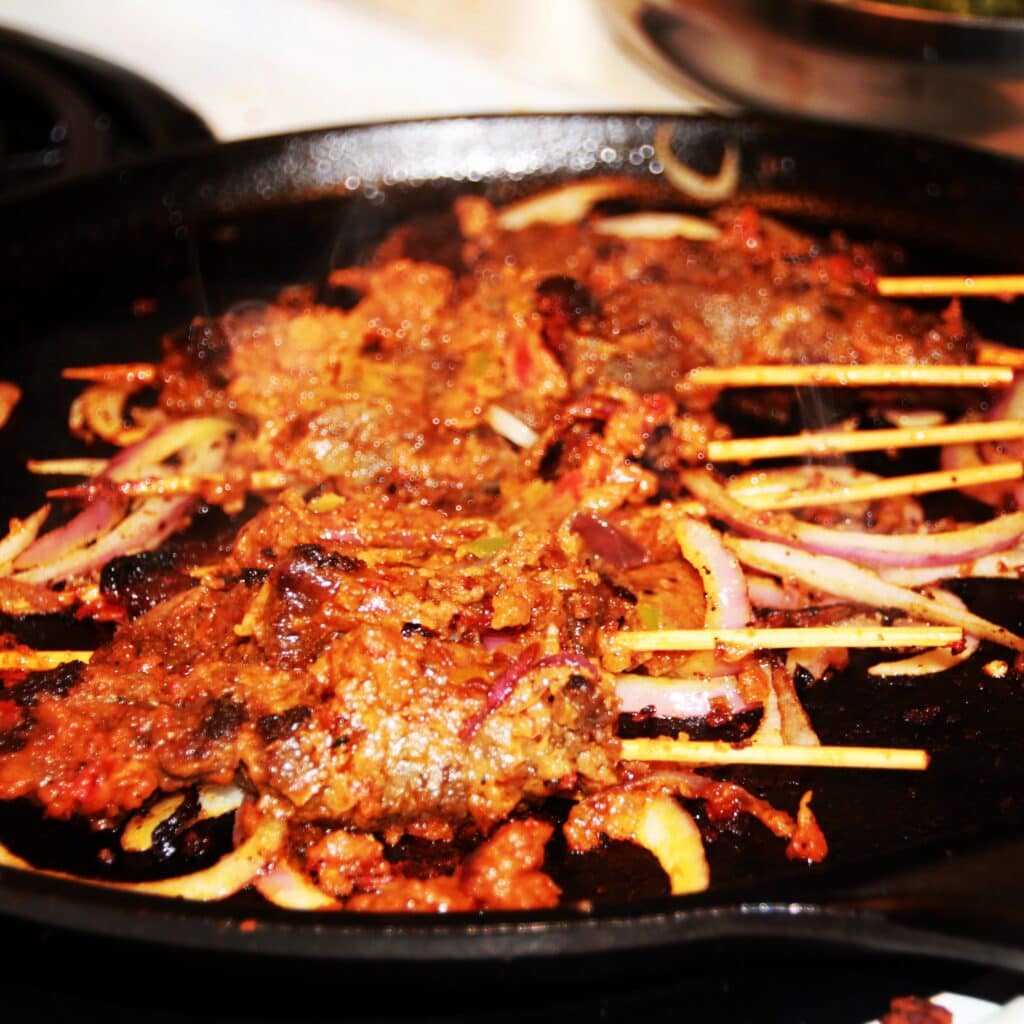
Kelewele
Kelewele is a popular Ghanaian street food made from ripe plantains seasoned with spices like ginger, chili pepper, and salt. The plantains are typically diced or cut into chunks, marinated in the spice mixture, and then deep-fried until golden brown. Kelewele is often served as a snack or side dish.
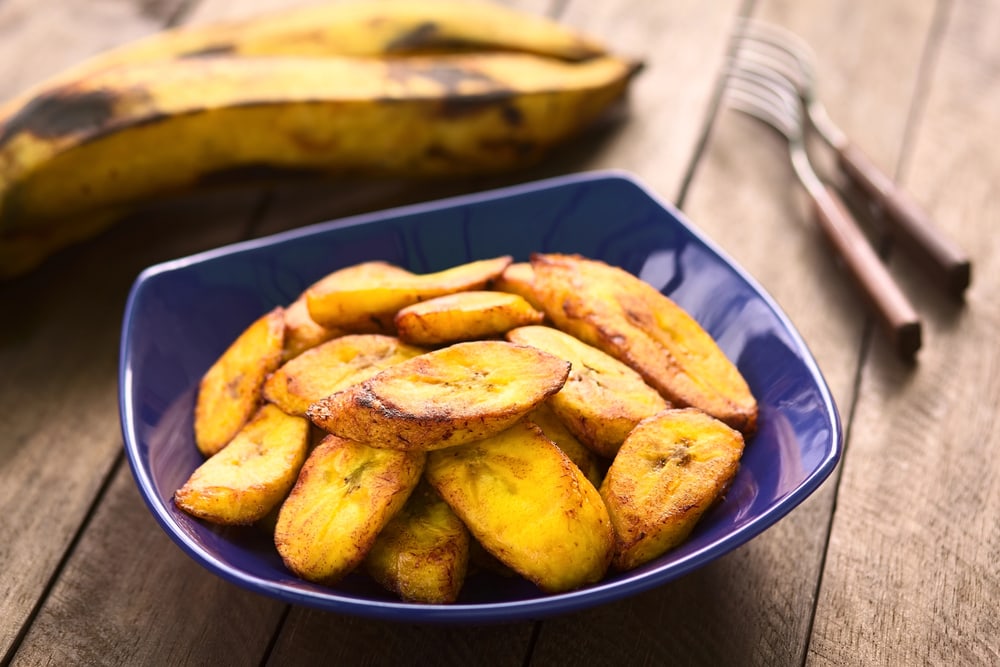
Thieboudienne
Thieboudienne, also known as ceebu jën or tiebou dienn, is the national dish of Senegal. It is a flavorful rice and fish dish cooked in a tomato-based sauce with various vegetables such as cabbage, carrots, eggplant, and cassava. The fish used in thieboudienne is typically either fresh or dried and can include varieties like grouper, red snapper, or mackerel. Thieboudienne is often served with a spicy condiment called “sauce rouge” and served over rice.
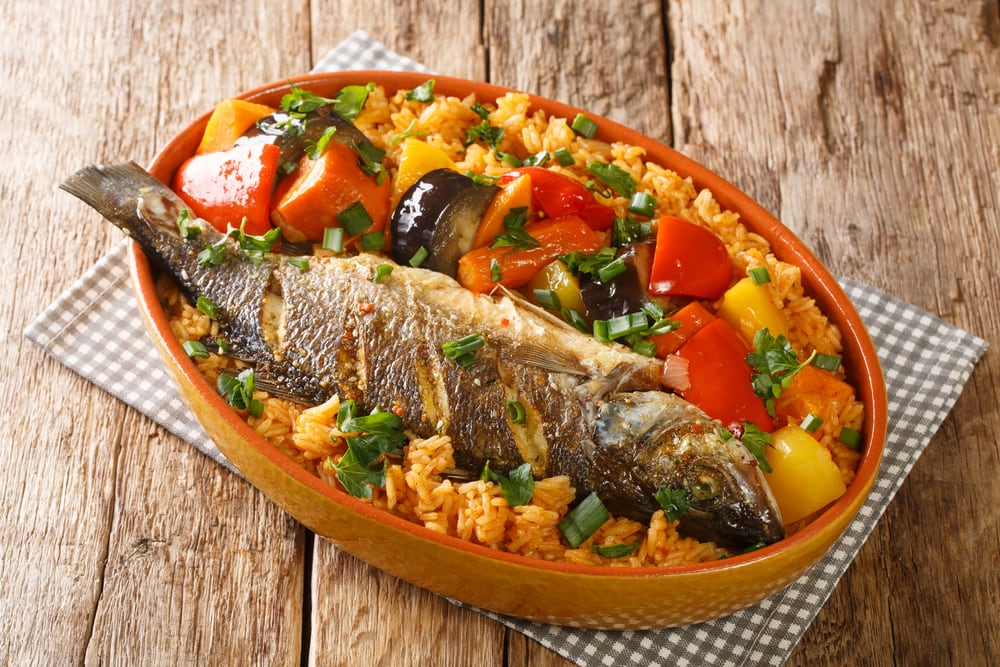
Yassa
Yassa is a popular dish from Senegal and other West African countries, particularly the Wolof people. It consists of marinated grilled or roasted chicken, fish, or beef, typically served with a tangy sauce made from onions, lemon juice or vinegar, mustard, and spices such as garlic and chili peppers. Yassa is often accompanied by rice and can be found in many variations, including vegetarian options with tofu or vegetables.
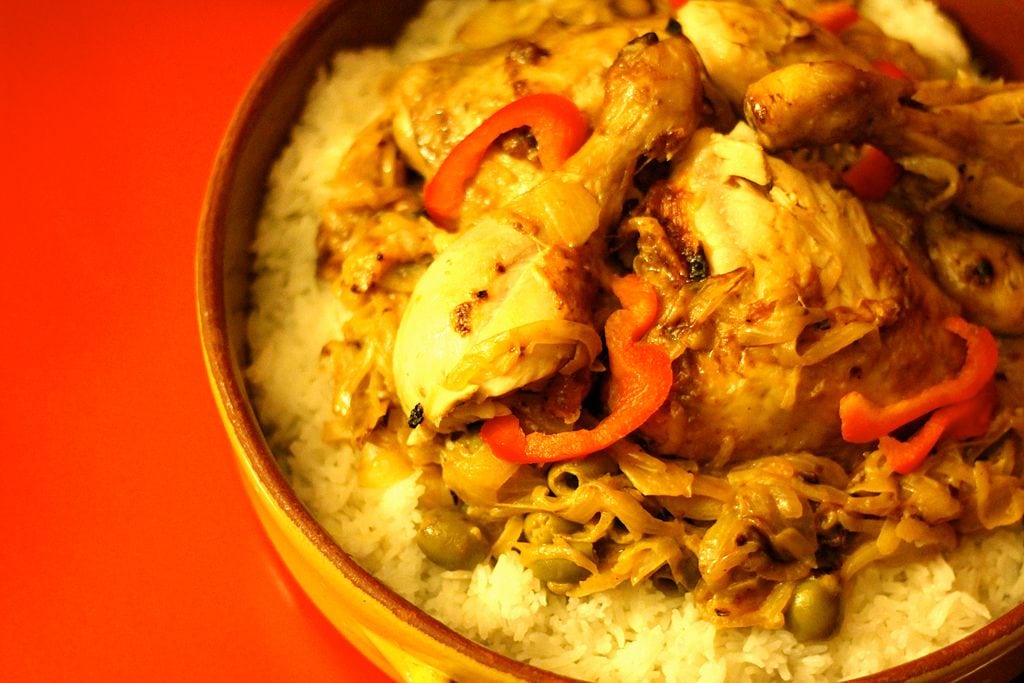
Questions about West African Foods
1. What is West African cuisine known for?
West African cuisine is known for its diverse flavors, bold spices, and use of ingredients such as tomato, peanut sauce, yam, and plantain. It consists of various dishes that are loved for their rich tastes and unique cooking techniques.
2. What are some popular West African dishes to try?
Some popular West African dishes you need to try include jollof rice, fufu, kelewele, thieboudienne, maafe, fried Plantain and yassa. These dishes showcase the vibrant flavors and culinary diversity found throughout West Africa.
3. Which countries in West Africa are known for their cuisine?
Several West African countries are renowned for their delicious dishes, including Ghana, Nigeria, Senegal, Guinea, Liberia, and Mali. Each country offers its own specialty foods that reflect its unique culinary traditions.
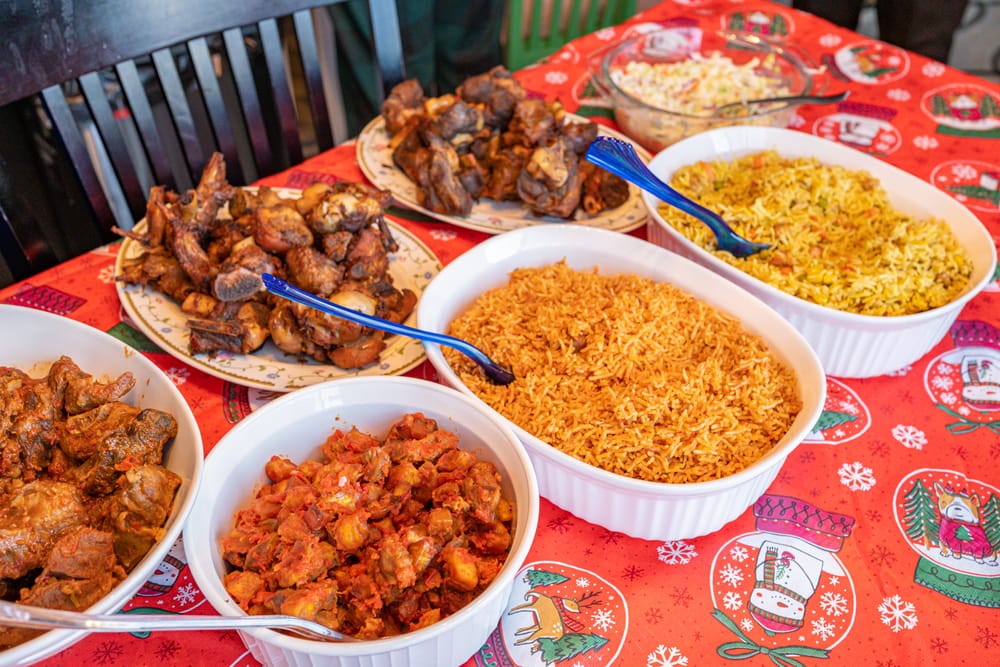
4. What ingredients are commonly used in West African cooking?
West African cooking often incorporates ingredients like palm oil, cassava, scotch bonnet peppers, black-eyed peas, okra, and groundnut (peanut)and chickpeas. These ingredients contribute to the distinctive flavors and aromas of West African dishes.
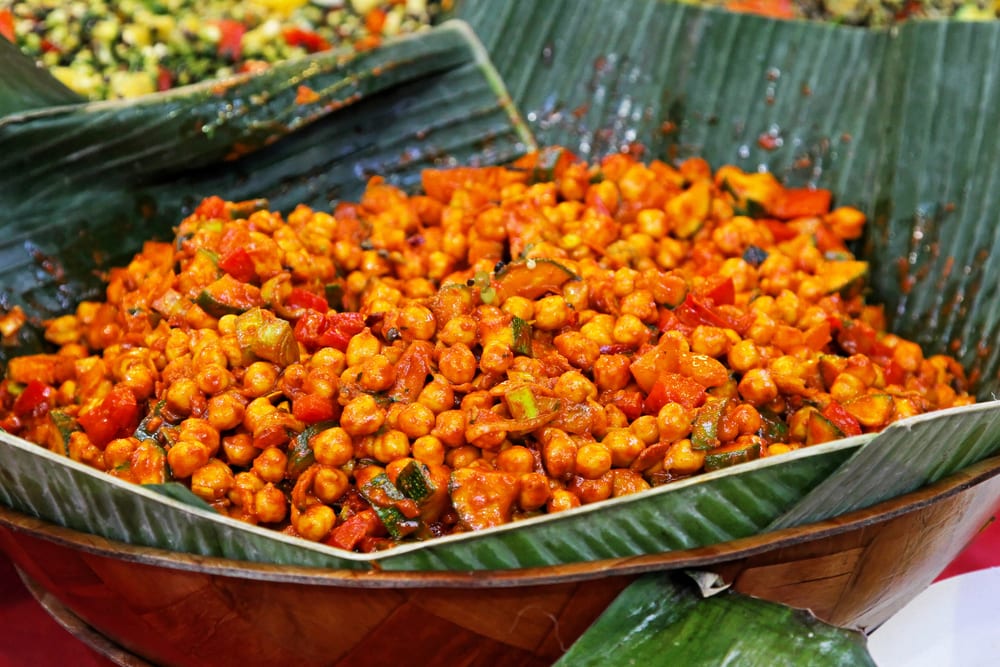
5. How is West African food usually served?
West African food is usually served with white rice, fufu, or pounded yam. Many dishes are accompanied by flavorful stews or sauces that enhance the overall taste. Vegetables and proteins are also common components of a West African meal.
6. What makes West African cuisine a popular choice?
West African cuisine is favored for its rich and bold flavors, use of fresh ingredients, and the variety of dishes it offers. The combination of sweet, savory, and spicy flavors makes it a delightful culinary experience for food enthusiasts.
Have you tried West African Food? What were your favourites?
You might also like
Food in Malta – the ultimate guide

